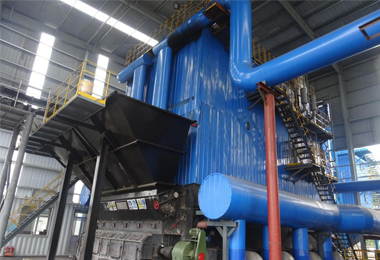
Nov . 16, 2024 19:55 Back to list
Comparison of Steam Boilers and Water Boilers for Efficient Heating Solutions
Steam Boiler vs. Water Boiler Understanding the Differences
When it comes to heating systems, steam and water boilers are two prominent types that are often discussed. While they both serve the same fundamental purpose—providing heat—they utilize different methods and processes to achieve this end. Understanding the differences between steam boilers and water boilers can help you make informed decisions about heating solutions for your home or business.
Steam Boilers
Steam boilers operate by heating water to a boiling point, creating steam. This steam is then distributed through pipes to radiators or other heating units, where it releases heat into the environment. One of the primary advantages of steam boilers is their efficiency. They can heat spaces quickly and effectively, making them ideal for large buildings and industrial applications. Additionally, steam systems can operate at higher temperatures compared to water systems, which makes them beneficial in environments where high heat is essential.
However, steam boilers come with their own set of challenges. They require regular maintenance to prevent issues such as leaks or pressure fluctuations. Moreover, the steam must be properly controlled to avoid overheating and potential damage to the piping system. The initial installation and setup can also be more complex, as steam systems require specific components and design considerations.
steam boiler vs water boiler

Water Boilers
In contrast, water boilers function by heating water and distributing it as hot water rather than steam. This type of system generally operates at lower pressures and temperatures, making it safer and easier to maintain than steam systems. Water boilers provide a steady and consistent heat output, and they are capable of delivering hot water for various uses, such as domestic heating, radiant floor systems, and even hot water needs.
One of the significant benefits of water boilers is their energy efficiency. They can often operate at lower energy costs compared to steam systems, making them a more economical choice for many residential applications. Additionally, water boilers often have a simpler design and require less maintenance than steam systems.
Conclusion
In summary, the choice between a steam boiler and a water boiler largely depends on your specific heating needs and the structure of your building. Steam boilers excel in high-demand environments requiring rapid heating, while water boilers offer efficiency and ease of maintenance for residential settings. By understanding the differences between these two systems, you can select the right boiler that suits your requirements, ensuring optimal comfort and efficiency in your heating solution.
-
High-Efficiency Commercial Oil Fired Steam Boiler for Industry
NewsJul.30,2025
-
High-Efficiency Biomass Fired Thermal Oil Boiler Solutions
NewsJul.30,2025
-
High Efficiency Gas Fired Thermal Oil Boiler for Industrial Heating
NewsJul.29,2025
-
High-Efficiency Gas Fired Hot Water Boiler for Sale – Reliable & Affordable
NewsJul.29,2025
-
High Efficiency Biomass Fired Hot Water Boiler for Industrial and Commercial Use
NewsJul.29,2025
-
High-Efficiency Biomass Fired Hot Water Boiler for Industrial Use
NewsJul.28,2025
Related PRODUCTS






















